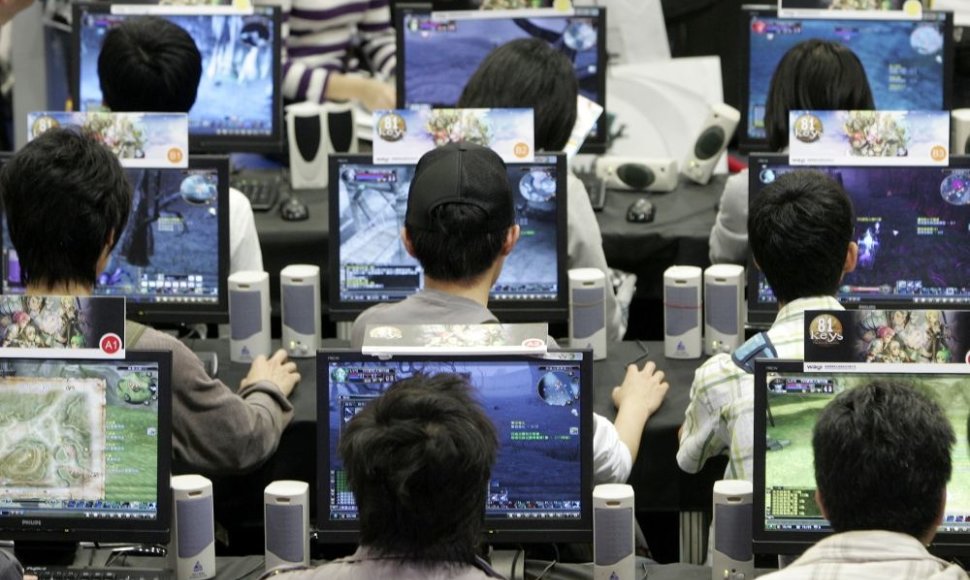Many find it distasteful to even consider something created from lines of code as being thought of as art. Others accept video games as an evolution of cultural expression – one that involves the viewer in a personal exploration of concepts.
If galleries can host interactive installations that are dubbed “art”, why shouldn’t video games – a form of media built around interaction as the core idea – be called art as well?
It would appear that the author’s intent plays a large role in how their creation is perceived. The audience would be more likely to recognize something as art, if they knew it was designed as such from the beginning.
However, this raises a further query: would a video game that objectively has the elements of an artistic piece still be labeled as art, even if it was created with no such purpose in mind? Is it possible to accidentally create art?
If art is defined as skillful procedure, a process of competent creation, then the answer is “yes.” In this case, anything that clearly required a large amount of skill to be produced should be referred to as art, since there is a close association in the human mind between the quality of a result and the amount of effort spent in achieving it.
Video games as a category of media would appear to be art, since they cannot avoid having some sort of (un)intended artistic elements, use interaction as a means to draw the audience into an aesthetic adventure into someone else’s mind.
Does this make things any less muddled? Unfortunately, no. A whole slew of questions beg to be answered. What is the skill barrier separating art from non-art? Who decides where the barrier is? Is the skill barrier perceived subjectively, or is there an objective way to measure it? How can we be sure that any declaration of a creation being art is accurate? What if someone manages to produce an aesthetically pleasing piece without much (or even – any) effort?
Since it is hard to determine what does and what does not constitute art, when considering the intention behind the design and the skill associated with it, what criteria should be used to classify art? What form does Occam’s Razor take in this situation?
Art being linked to aesthetic pleasure runs into a very solid obstacle: everyone’s tastes differ and they change with time, experience and conditioning.
The average score of society’s opinion of what is pleasing to behold would not work either. This lowest common denominator approach would be representing only a fraction of what is found to be appealing and would embody only creations of moderate quality.
What about art as usefulness and direct value? Contributing to society isn’t exactly the purpose of art, if one would think about this intuitively.
It would seem that art created for its own sake, without any pragmatism in mind, would be a more precise interpretation. Since video games are created with the primary intention of allowing others to experience a different world, to provide a form of escapism from reality, they seem to fit this definition: enjoyment of video games, just like enjoyment gained from reading a book or watching a film is not useful in any tangible manner.
In this case, art would be created to express the author’s emotions, thoughts and imagination. Is this not a sufficiently simple – and at the same time exceptionally complex – criterion for calling something art?
If so, “art” becomes a category encompassing a very wide range of activities and gives rise to distinguishing between good and bad art (and everything in between and beyond the two categories) – “Art” and “art”, so to speak.
It is this particular distinction about the quality of art that can use the previously mentioned qualifications – intention, level of skill, aesthetic pleasure – to determine what kind of cultural impact a piece would have.
Video games franchises such as Call of Duty or Halo are popular and widely accepted, but do they leave an impact in the hearts and mind of the public as deep as Bastion and Portal?
Great art requires lasting impressions that force the audience to think, to reconsider biases and to see the world from someone else’s viewpoint. It is about sharing ideals, broadening horizons and inspiring people to think about something new.
As Banksy says, “Art should comfort the disturbed and disturb the comfortable.” In a manner of speaking, being an artist means being a rebel, since it requires endless originality and novel means of presentation.
Ironically, video games would be the perfect candidate for art: they are a relatively new form of expression and are radically challenging the accepted formula of guided versus interactive media.
Video games as a category of media would appear to be art, since they cannot avoid having some sort of (un)intended artistic elements, use interaction as a means to draw the audience into an aesthetic adventure into someone else’s mind.
Does this mean that all video games are great art? Obviously not. Recognizing a new form of expression as being relevant to society does not immediately make it the height of culture.
Hopefully, once the discussion about art and video games simmers down (perhaps with the arrival of another pretentious medium), everyone can return to what is important – aiming for the highest quality of thought, creation and aesthetics.












